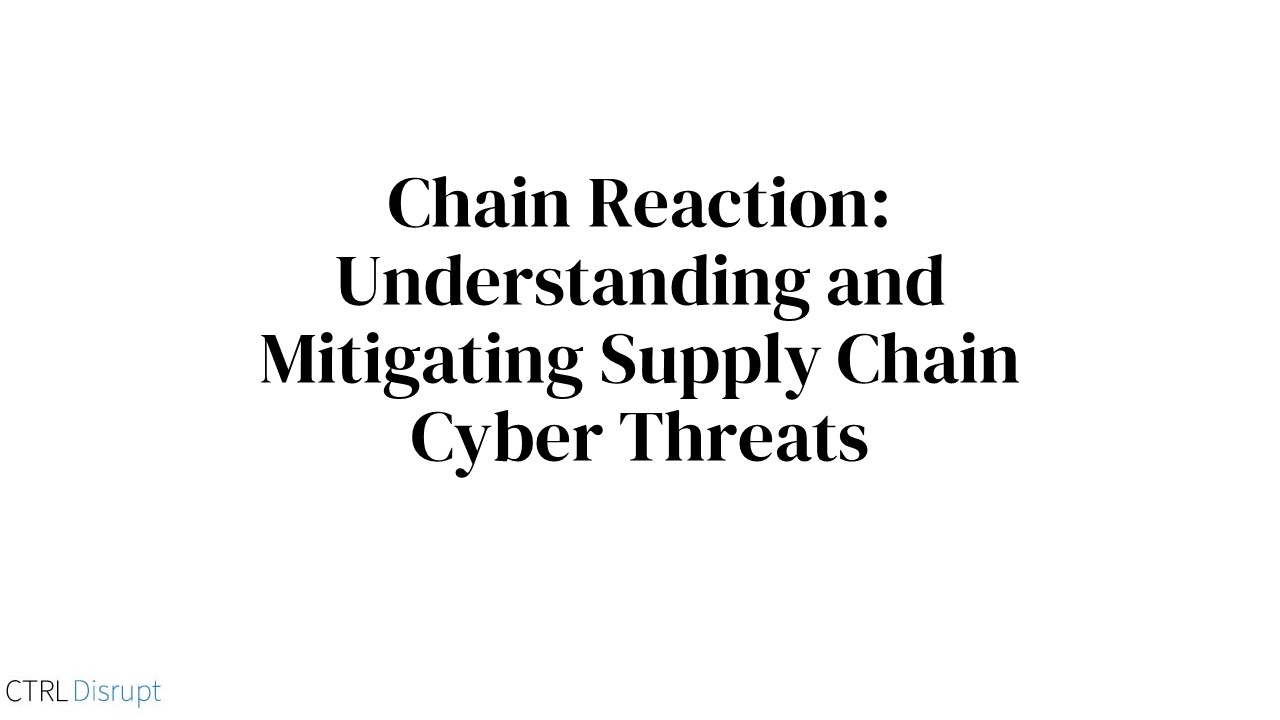Navigating Black Friday Sales: A Consumer's Guide to Online Safety
Stay safe during Black Friday sales with our guide on avoiding scams, secure payment practices, and protecting your online privacy.
1. Introduction
Black Friday and Cyber Monday have become synonymous with incredible deals and significant savings. As these popular shopping days draw near, millions of consumers turn to online platforms in search of the best bargains. While this digital shopping spree promises convenience and unbeatable offers, it also opens the door to potential online security risks. In this guide, we'll walk you through essential tips and best practices to ensure your online shopping experience is not only fruitful but also safe and secure.
2. The Risks of Online Shopping During Black Friday
The excitement of Black Friday and Cyber Monday sales often brings with it a surge in online security threats. As consumers scour the internet for the best deals, they may inadvertently fall prey to various cyber risks. Here are some key threats to be aware of:
-
Phishing Scams: These are deceptive emails that appear to be from reputable retailers, offering incredible deals. They typically contain links that lead to fake websites, designed to harvest personal and financial information.
-
Fake Websites: Fraudulent websites that imitate well-known retailers can be particularly convincing during Black Friday. These sites often lure shoppers with unrealistic discounts, aiming to steal credit card information or install harmful malware.
-
Identity Theft: Cybercriminals use Black Friday as an opportunity to gather personal information through deceptive means. With this data, they can impersonate shoppers, making unauthorized purchases or opening new accounts in their name.
-
Malware and Ransomware: Malicious software can be disguised in promotional emails or on fraudulent websites. Once downloaded, it can lead to serious issues like ransomware attacks, which lock users out of their systems and demand payment for access.
-
Credit Card Fraud: With the high volume of transactions during Black Friday sales, cybercriminals often test stolen credit card information, exploiting the busy period when retailers and banks are processing a large number of transactions.
Awareness of these risks is crucial for safe online shopping during the Black Friday frenzy. By understanding the threats, shoppers can better prepare and protect themselves. The following sections will provide valuable tips and strategies to help you navigate these digital dangers effectively.
3. Preparing for Safe Online Shopping
As the Black Friday and Cyber Monday shopping frenzy approaches, preparing to shop safely online is critical. Here's a guide to help you navigate the digital marketplace securely, focusing first on preventive measures against scams and data loss, followed by strategies to safeguard your information from malicious actors.
Preventative Measures Against Scams and Data Loss:
-
Recognizing and Avoiding Scams:
- Be cautious of emails with offers that seem too good to be true, especially those urging immediate action or requesting personal information. Watch for signs like poor spelling, generic greetings, or sender addresses that look suspicious.
- Be vigilant about unexpected offers from parties you haven't subscribed to. Unsolicited emails or messages from unknown sources are often red flags for phishing attempts.
- Pay close attention to email offers, even if they appear to be from familiar retailers. Look for signs of authenticity, such as the sender's email address and the presence of personalized information that indicates the sender knows who you are.
-
- Scrutinize the authenticity of shopping websites. Look for secure URL indicators like ‘https://’ and a padlock symbol. Be wary of websites with odd domain names or designs that seem unprofessional.
- Got a fishy link? Check it with free online tools such as https://urlscan.io/ or https://www.virustotal.com/gui/home/upload
-
Ensuring Website Security:
- Before entering any personal or financial information, ensure the website is legitimate and secure. The presence of ‘https://’ in the URL and a padlock icon in the address bar signifies that the site uses encryption to protect your data.
- Avoid making purchases or logging into accounts on websites that lack these security indicators.
Strategies to Safeguard Your Information:
-
Strong, Unique Passwords:
Create strong, unique passwords for each online retail account. Use a mix of characters, including upper and lower case letters, numbers, and symbols. Avoid using easily guessable passwords like birthdays or common phrases. -
Update Security Software:
Make sure your computer, smartphone, or tablet is equipped with the latest security software. Updated browsers and operating systems are crucial in defending against the latest cyber threats, such as malware and viruses. -
Enable Multi-Factor Authentication (MFA):
For an added layer of security, enable MFA on your online accounts. This process typically requires a second form of verification, such as a text message or app notification, making it harder for unauthorized users to gain access. -
Stay Informed and Vigilant:
Keep abreast of the latest online threats and scams. Being informed helps you stay one step ahead of cybercriminals. Regularly checking reputable cybersecurity news sources can be beneficial.
By adopting these preventative measures and strategies, you can significantly reduce the risk of falling victim to online scams and data breaches, ensuring a safer shopping experience during the Black Friday and Cyber Monday sales. The upcoming sections will delve into specific secure payment practices and what to do if you encounter any security issues while shopping online.
4. Spotting and Avoiding Scams
In the digital shopping landscape, especially during high-volume events like Black Friday and Cyber Monday, scammers employ various tactics to deceive consumers. Knowing how to spot these scams is your first line of defense. Here’s what to look out for and how to avoid falling victim to these fraudulent activities:
-
Too-Good-to-Be-True Deals:
One of the most common lures used by scammers is offering deals that seem incredibly advantageous. If a discount seems excessively steep or an offer appears drastically better than what other retailers are providing, it's a potential red flag. Always verify the legitimacy of the offer through official channels or direct contact with the retailer. -
Suspicious Email Links and Fake Websites:
Be extremely cautious with links in emails, especially if they lead you to websites where you're asked to input personal or financial information. Cross-reference the URL with the official retailer’s site. Fake websites often mimic legitimate ones but may have subtle differences in the URL or site layout. Use tools likeurlscan.ioorwww.virustotal.comto scan links for authenticity. -
Unusual Payment Requests:
Be wary of requests for payment via unorthodox methods like gift cards, wire transfers, or cryptocurrencies. These methods are favorites among scammers due to the difficulty in tracing and recovering funds. Legitimate retailers will typically offer standard, secure payment options. -
Check for Website Security Certificates:
Secure websites will have valid security certificates. Look for signs such as a locked padlock next to the website’s URL or a web address that begins with ‘https://’. This indicates that the website is encrypted and more secure. -
Review Privacy Policies and Terms of Service:
Legitimate websites often have comprehensive privacy policies and terms of service. Reading these can provide insights into the authenticity of the site and how your data will be used. -
Trust Your Instincts:
If something feels off about a website or an offer, trust your instincts. It’s better to err on the side of caution than to risk falling prey to a scam.
By being vigilant and educated about these red flags, you can navigate Black Friday and Cyber Monday sales more safely. In the next section, we will explore secure payment practices to further safeguard your online shopping experience.
5. Secure Payment Practices
When participating in Black Friday and Cyber Monday deals, how you pay for your purchases is just as important as the deals you find. Practicing secure payment methods can significantly reduce the risk of fraud and financial loss. Here are some best practices for making secure online transactions:
-
Use Credit Cards or Secure Payment Services:
Credit cards generally offer better fraud protection compared to debit cards. In case of any unauthorized transactions, credit cards offer more robust dispute processes. Alternatively, consider using secure payment services like PayPal, Apple Pay, or Google Pay. These services add an extra layer of security as they don't require you to share your card details directly with the retailer. -
Avoid Saving Card Details on Websites:
While it’s convenient to save your payment information on retail websites for future purchases, this can increase your vulnerability. In the event of a data breach, saved details could be compromised. Instead, opt to enter your payment details each time you make a purchase, even though it might take a bit longer. -
Enable Transaction Alerts:
Most banks offer the option to set up transaction alerts via email or SMS. Enabling these alerts can provide immediate notification of any unauthorized activity on your account, allowing you to respond quickly. -
Regularly Check Bank Statements:
Make it a habit to regularly review your bank statements, especially during and after the Black Friday period. Look out for any unauthorized or suspicious charges and report them to your bank immediately. -
Secure Checkout Process:
During checkout, ensure that the website is secure and encrypted. Look for URLs that start with ‘https://’ and the padlock icon. Additionally, be wary of websites that redirect you to third-party payment processors with questionable security credentials. -
Beware of Public Computers and Networks:
Avoid making any purchases or accessing sensitive financial information on public computers or networks, as they may not be secure. If you need to shop on the go, use your mobile network rather than a public Wi-Fi network.
By following these secure payment practices, you can significantly reduce the risk of financial fraud and enjoy a safer online shopping experience during the busy Black Friday and Cyber Monday sales. The next section will guide you on what to do if you encounter any security issues while shopping online.
6. Privacy and Data Protection
In an era where data breaches are increasingly common, protecting your personal information is as vital as securing your financial transactions, especially during high-traffic shopping events like Black Friday and Cyber Monday. Here are some effective strategies to safeguard your privacy and personal data during online shopping:
-
Be Cautious About Sharing Personal Information:
When shopping online, be mindful of the personal information you share. Only fill out necessary fields during checkout and be wary of providing sensitive information like your social security number. If a website requests more information than seems appropriate, it’s a potential red flag. -
Understand Online Retailers' Privacy Policies:
Before making a purchase, take the time to read the retailer’s privacy policy. This document should outline how your data will be used, stored, and protected. A clear and transparent privacy policy is a good indicator of a retailer’s commitment to protecting customer data. -
Use VPNs for Additional Security:
A Virtual Private Network (VPN) can provide an additional layer of security, especially when shopping on the go. VPNs encrypt your internet connection, making it more difficult for criminals to intercept and access your data. This is particularly useful if you need to shop or access sensitive information while connected to public Wi-Fi networks. -
Be Wary of Unsolicited Communications:
Be cautious of unsolicited emails, messages, or phone calls asking for personal information, even if they appear to be from a known retailer. Always verify the authenticity of such communications by contacting the retailer through official channels. -
Regularly Update Privacy Settings:
Regularly review and update your privacy settings on retail websites and apps. Make sure you are comfortable with the amount of data being collected and how it is being used. -
Monitor Online Accounts:
Regularly check your online retail accounts for any unauthorized activity. If you notice unusual behavior, such as orders you didn’t place, change your passwords immediately and contact customer service.
By implementing these privacy and data protection strategies, you can significantly enhance your online safety, allowing you to focus on finding the best deals this Black Friday and Cyber Monday without compromising your personal information.
7. What To Do If You Encounter a Problem
Even with all the precautions, there's always a chance of encountering fraud or a security breach during online shopping, especially during high-traffic periods like Black Friday and Cyber Monday. It's important to know the steps to take if you suspect that your financial information has been compromised or if you fall victim to a scam. Here’s what you should do:
-
Contact Your Bank or Credit Card Company:
If you notice unauthorized transactions or suspect fraud, contact your bank or credit card issuer immediately. They can freeze your account, prevent further unauthorized transactions, and guide you through the process of disputing charges. Most financial institutions have 24/7 hotlines for such emergencies. -
Report Scams to Relevant Authorities:
Reporting the incident can help prevent others from falling victim to similar scams. You can report online shopping fraud to national consumer protection agencies, such as the Federal Trade Commission (FTC) in the U.S. or similar organizations in your country. If the scam involves a counterfeit or deceptive website, consider also reporting it to the Internet Crime Complaint Center (IC3) or your local cybersecurity authorities. -
Change Your Passwords:
If your accounts have been compromised, change your passwords immediately. This includes not only the password for the affected account but also any other accounts where you’ve used the same or a similar password. Remember to create strong, unique passwords for each account. -
Secure Your Accounts:
Review the security settings on your accounts to ensure they have optimal protection. Enable multi-factor authentication where available, as it adds an additional layer of security. -
Monitor Your Accounts and Credit Reports:
In the weeks and months following a security incident, keep a close eye on your financial statements and credit reports. Look for any irregularities or suspicious activities. Some banks and credit card companies offer free credit monitoring services after a security breach. -
Stay Informed:
After reporting a scam or fraud, stay informed about any follow-up actions or information from the authorities or your financial institutions. They may provide updates or additional steps to secure your information.
By following these steps, you can swiftly respond to and mitigate the impact of any security issues you encounter during your online shopping. Remember, quick action is crucial in these situations to protect your finances and personal information.
8. Conclusion
As we gear up for the excitement and savings that Black Friday and Cyber Monday offer, it's crucial to remember that a safe online shopping experience hinges on vigilance and informed practices. The digital landscape, abundant with deals and discounts, is also rife with potential cyber threats that can compromise your personal and financial information. However, by being aware and taking the necessary precautions outlined in this guide, you can significantly mitigate these risks.
The key to secure online shopping lies in being proactive about your digital safety. This means staying informed about the latest scams, regularly updating your security software, using strong and unique passwords, and being cautious about the information you share online. Equally important is the awareness of secure payment methods and the steps to take should you encounter any problems.
Black Friday and Cyber Monday are not just about finding the best deals but also about enjoying these shopping events responsibly and securely. By adopting the strategies and best practices discussed, you can confidently navigate the online shopping landscape, making the most of the season's offerings without compromising your security.
So, as you prepare to take advantage of the myriad deals available, do so with the assurance that you are well-equipped to shop safely. Enjoy the thrill of hunting for bargains, but remember, the greatest deal you can secure is your online safety and peace of mind.

 By
By


